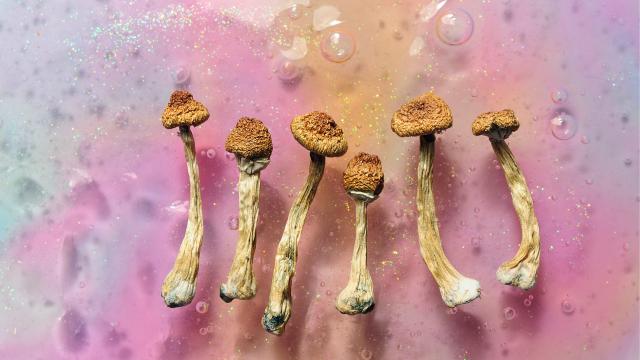Microdosing — the act of taking small amounts of usually psychedelic drugs — has been popular with a certain type of person looking for more productivity than what standard life hacks like caffeine and time management can provide. Whether it works is still unknown, but a new study suggests that the vaunted benefits may have been attributable to the placebo effect all along.
The drugs involved, typically LSD or psilocybin mushrooms, are illegal in most places, and the communities discussing how to microdose are thus typically underground, unofficial, and full of anecdotes more than data. This 2018 piece from The Cut describes the phenomenon in some detail.
The basic idea, though, is that by taking a minuscule amount of what would otherwise be a hallucinogen — often 10% or less of a recreational dose — you won’t feel high, but you will feel something. A reddit guide describes some common benefits as feeling focused, creative, “open,” calm, alert, compassionate, grateful, or in a flow state.
With such subtle benefits, it may be impossible for an individual to know whether their experience comes from the drug or is a manifestation of their own expectations. In other words, it could be the placebo effect.
[referenced id=”1042401″ url=”https://www.lifehacker.com.au/2021/01/how-to-change-your-life-through-the-power-of-suggestion-with-science-journalist-erik-vance/” thumb=”https://www.gizmodo.com.au/wp-content/uploads/sites/4/2021/01/12/eljit2lru68m2bknhrjl-300×169.png” title=”How to Change Your Life Through the Power of Suggestion, With Science Journalist Erik Vance” excerpt=”This week we’re learning how we can use hypnosis and the placebo effect to our advantage, with help from science journalist Erik Vance. Did you know, for instance, that you can still benefit from the use of placebos even if you know that you’re taking a placebo? Listen to hear…”]
The term “placebo effect” was originally coined to refer to the fact that people in clinical trials would often improve even when they didn’t get the drug being tested. It’s often described now as being a mind-over-matter phenomenon, where you will your perceptions into reality. But it can also be a less exciting mix of factors, like attributing good changes to the drug and bad ones to ourselves or external obstacles. We also rarely experience one thing in isolation; if you’re microdosing to help your focus, you’re probably also putting on some good music and hanging a “do not disturb” sign on your door.
So to sort this out, a group of scientists came up with a “self blinding” protocol that microdosers could do at home. Participants were instructed to prepare capsules with and without their usual microdose of their usual psychedelic drug. They put the capsules into envelopes with QR codes, then shuffled and selected envelopes to use in the study in a way that ensured they were getting either four weeks of microdoses, four weeks of nothing, or half and half.
The participants rated how they felt, and also took a variety of online tests to measure their cognitive functioning. In the end, both people who did and who did not get the microdoses improved in “all psychological outcomes.” The people who got the real microdoses improved slightly more, which would seem to suggest a small true effect.
But there’s a twist: the investigators asked participants to guess whether they had taken the real or the empty doses. The people who felt and performed the best while taking microdoses were the same people who correctly guessed that they were taking microdoses. So it’s possible that the effects were due to people knowing what they were taking.
The researchers write: “The findings suggest that anecdotal benefits of microdosing can be explained by the placebo effect.” Further research might be able to tease out specific benefits, if they do exist. Maybe certain types or dosages work better than others. But so far, it certainly seems likely that the benefits of microdoses are very small.

Leave a Reply
You must be logged in to post a comment.